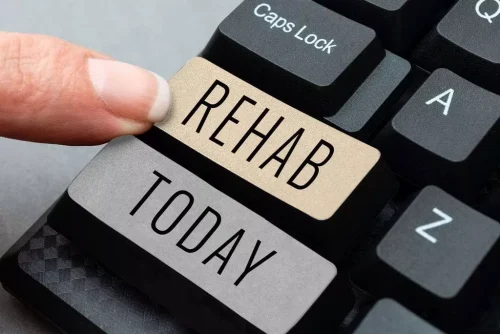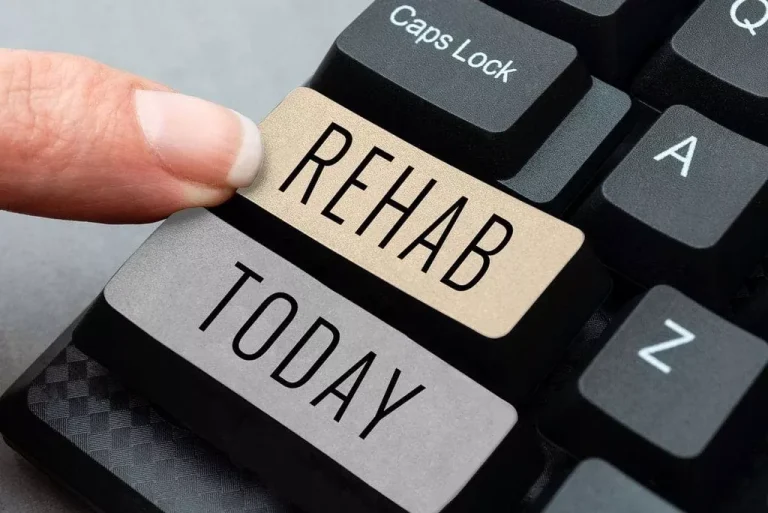Rather than face the feelings, they are using the substance to “regulate” themselves. In the view of an alcoholic, nothing matters more than where they are getting their next drink. The following fix will remain the most essential thing in their life until they enter recovery because their body quite literally needs the substance for them to function. Couples counseling and lessening the amount that you drink can help you in all aspects of your life. It’s best to be upfront with your partner drug addiction and let them know that your actions were uncalled for and that you feel as though you are not a good candidate for alcohol consumption.
Why Are Alcoholics So Mean To The Ones They Love?
When alcohol suppresses these regulatory functions, it can affect how you express your thoughts and emotions, including anger. Take Bob as an example – a mild-mannered accountant by day but come Friday night after a few beers, he’s arguing with everyone in the bar. It’s not that alcohol has transformed Bob into some Jekyll-and-Hyde character; it’s more likely unearthed frustrations simmering beneath the surface. Christopher Bergland is a retired ultra-endurance athlete turned science writer, public health advocate, and promoter of cerebellum (“little brain”) optimization. If you’re enjoying this article, consider supporting our award-winning journalism by subscribing. By purchasing a subscription you are helping to ensure the future of impactful stories about the discoveries and ideas shaping our world today.
Nicotine in Psychology: Exploring Its Definition, Effects, and Implications
It’s important to be patient with your spouse as they work towards sobriety, while also taking care of yourself. There are many resources available to help you cope with the situation, so don’t hesitate to reach out for help. The point that is being emphasized here is that for those people who become irritable while drinking it can seem as though a personality change or transformation has occurred to the loved ones surrounding this person. Of course, the transformation is not permanent and the previously inebriated individual returns to baseline after they recover from the drinking episode. While further MRI studies with larger samples of drunk and sober participants are needed, this study gives researchers a clearer picture of where alcohol-induced aggression may come from. Depending on the frequency of your use, you may need to discuss https://ecosoberhouse.com/ alcohol tapering strategies with your doctor.
Peer Pressure and Social Environment
It affects parts of your brain responsible for movement, memory, self-control, and basic functions like hunger and thirst. These figures show a significant rise in familial conflicts linked to alcohol-induced anger over just three years. Friends should be aware of this tendency and help the Nutty Professor drunk navigate social interactions safely. Friends should intervene when they notice signs of a potential blackout, such as extreme confusion or repetitive speech. Encouraging slower drinking and hydration can help prevent blackouts.
Why You’re a Jerk When You Drink Alcohol
As this was happening, the scientists were busy scanning their brains, paying close attention to the part of the game when participants have to decide about whether to be aggressive or not in terms of the retaliation. Denson’s team could visually see which areas of the brain were active when the task was performed, and then compare the differences between those who drank alcohol to those who did not. While generally pleasant, Mary Poppins drunks may occasionally overstep social boundaries or make impulsive decisions due to their amplified positive outlook. Treatment may involve detoxification, medication, therapy, and lifestyle changes.
- Some individuals become more friendly and agreeable, while others may become argumentative or confrontational.
- This is why professional guidance can be so valuable in addressing mean drunk behavior.
- This can lead to increased consumption and potentially more severe intoxication.
A comprehensive approach tailored to individual needs typically yields the best results in managing AUD. If someone believes alcohol will why does alcohol make some people mean make them more sociable, they may act accordingly, even before the physiological effects of intoxication set in. Friends should offer support while encouraging healthier coping mechanisms. Professional help might be necessary if sadness persists when sober. Sad drunks become increasingly melancholic or depressed as they drink. They may dwell on past regrets, current problems, or existential concerns.
- They will often blame innocent bystanders for provoking them to anger and meltdown into fits of rage over the smallest things because they demand that everything be their way.
- The platform provides reliable resources, accessible services, and nurturing communities.
- Some individuals may become more outgoing or boisterous in an attempt to fit in or stand out among their peers.
Patients were instructed to take one tablet on days when they perceived a risk of drinking alcohol. An April 2013 study found a drug called Nalmefene to be a potential new treatment option for alcohol abuse. Researchers in Germany found Nalmefene to be an effective and safe tool for reducing alcohol consumption in alcohol-dependent individuals. One way to limit alcohol aggression is to track how much alcohol it takes to before you become someone you don’t want to be and cut yourself off before you become a mean drunk.
The Psychology Behind Alcohol-Induced Aggression
For instance, individuals with high levels of trait anger or impulsivity are more prone to alcohol-induced aggression. These traits can make it harder for people to control their emotions and impulses when their inhibitions are lowered by alcohol. Alcohol tends to lower inhibitions and affect judgment, which can lead to aggressive behavior. Research suggests that certain factors might make a person more likely to become aggressive when they drink. These include underlying mental health issues, personal history of violence, and even genetics. When it comes to treating and preventing mean drunk behavior, a multi-faceted approach is often most effective.







